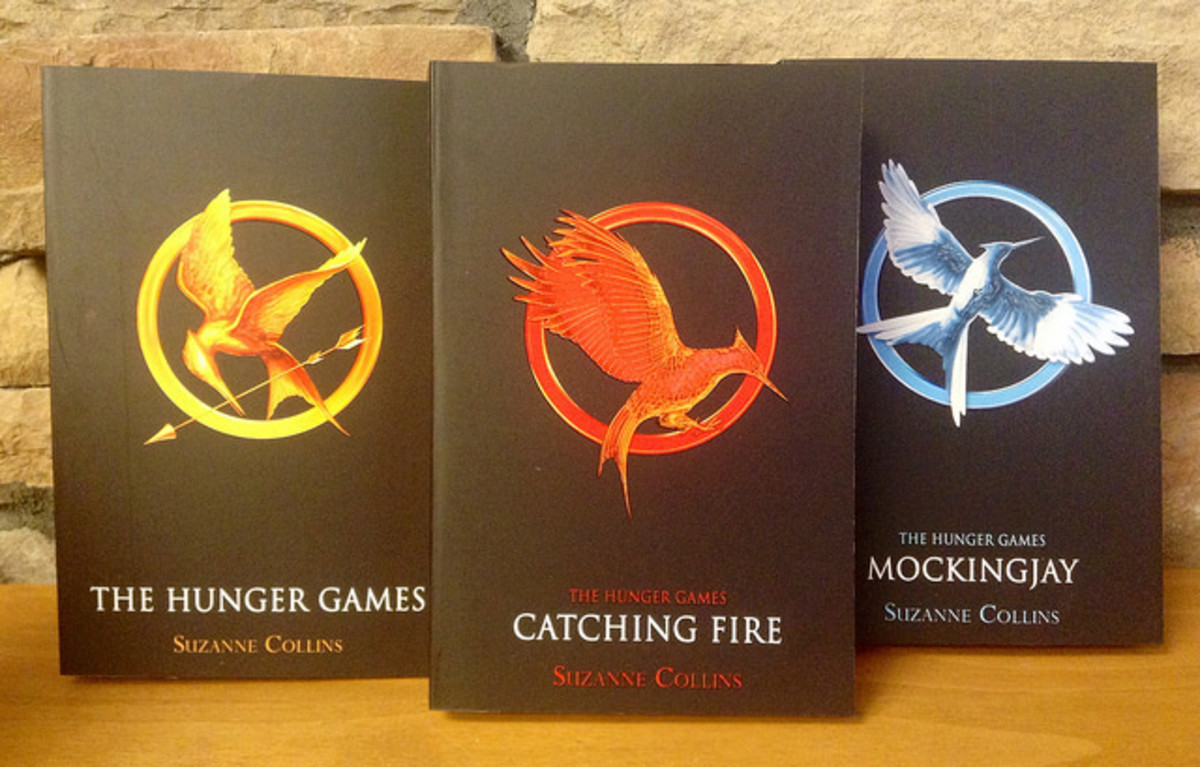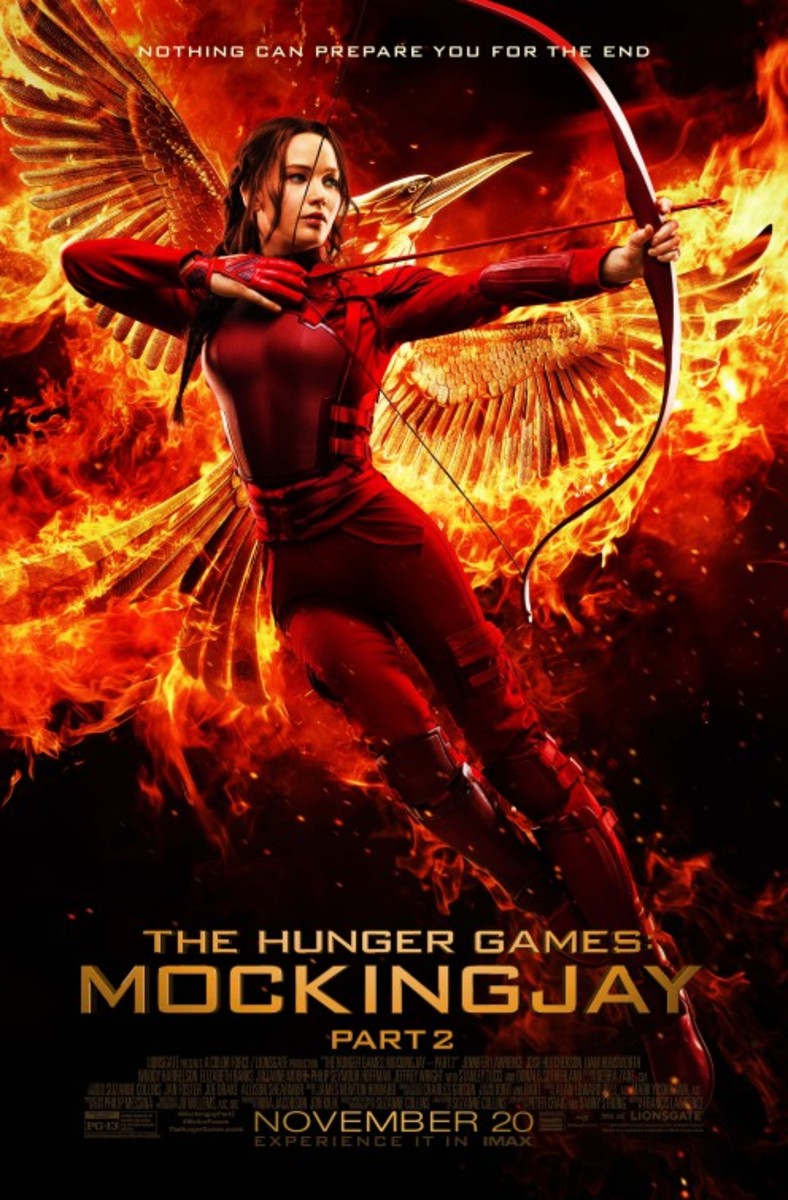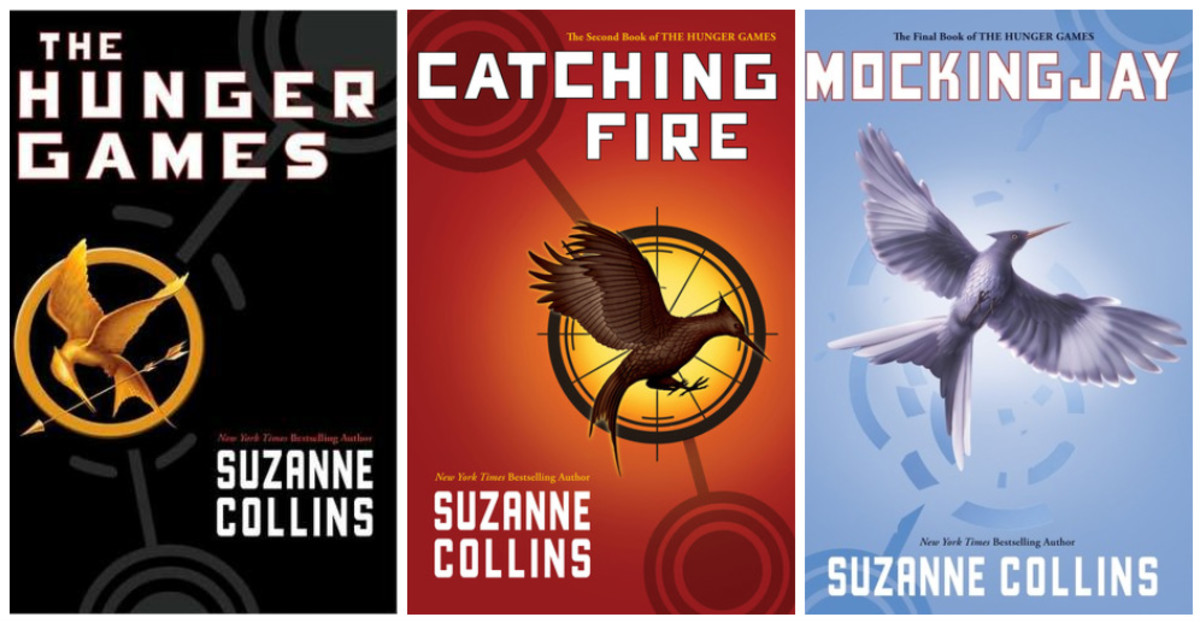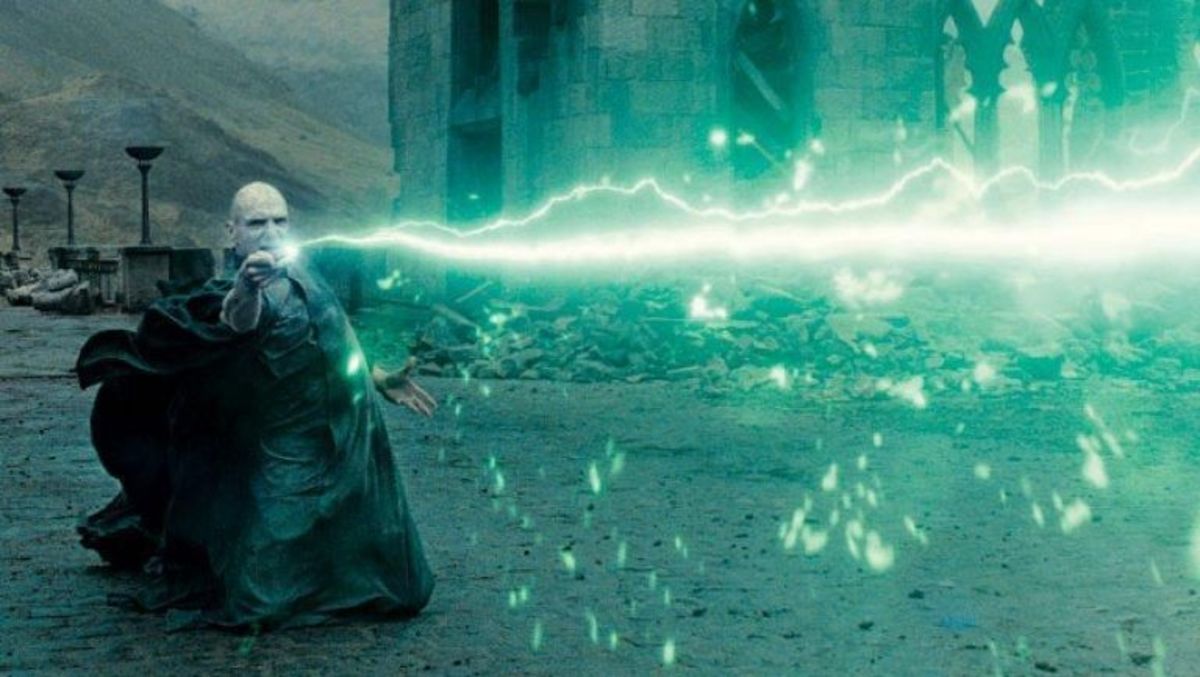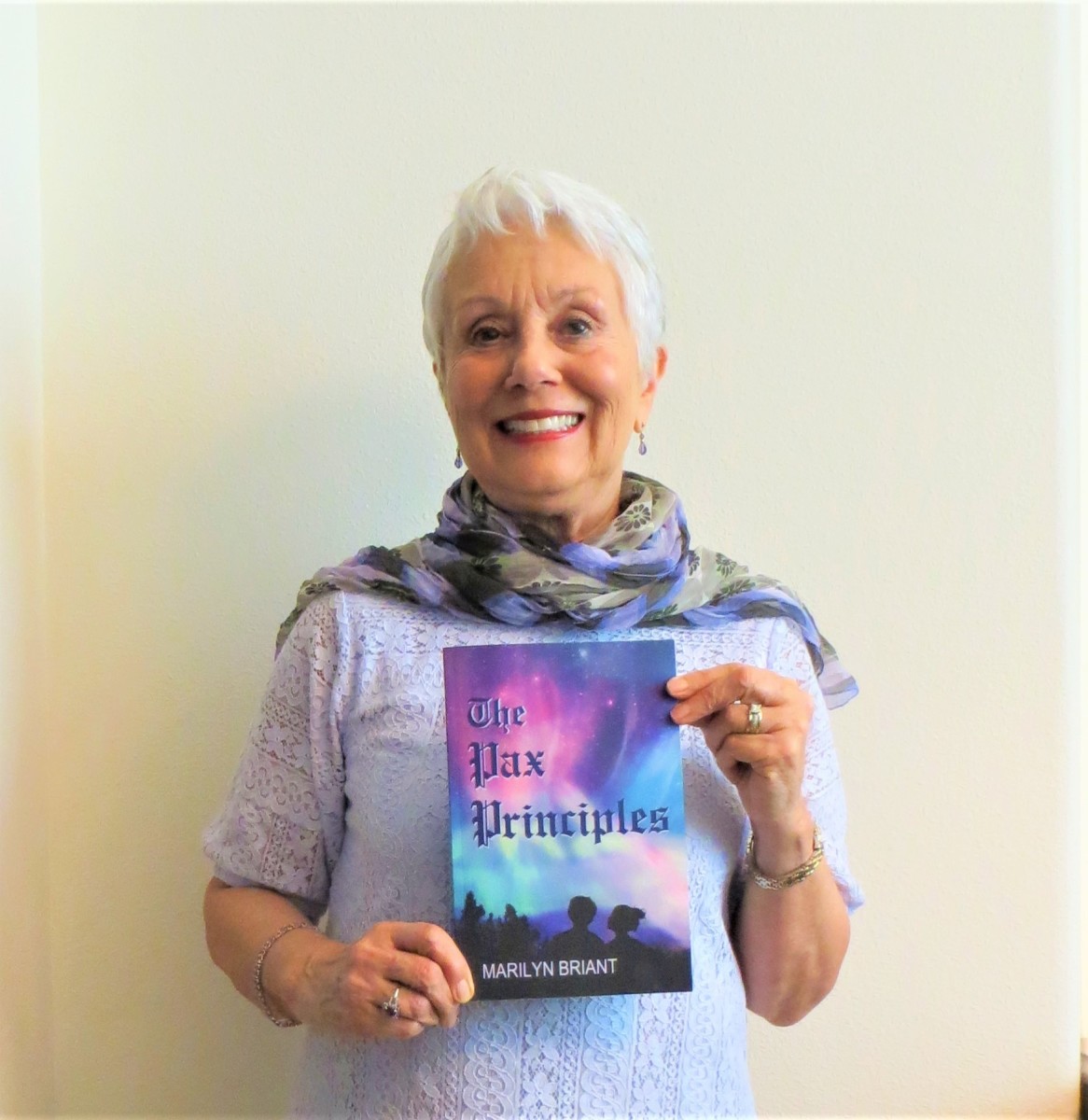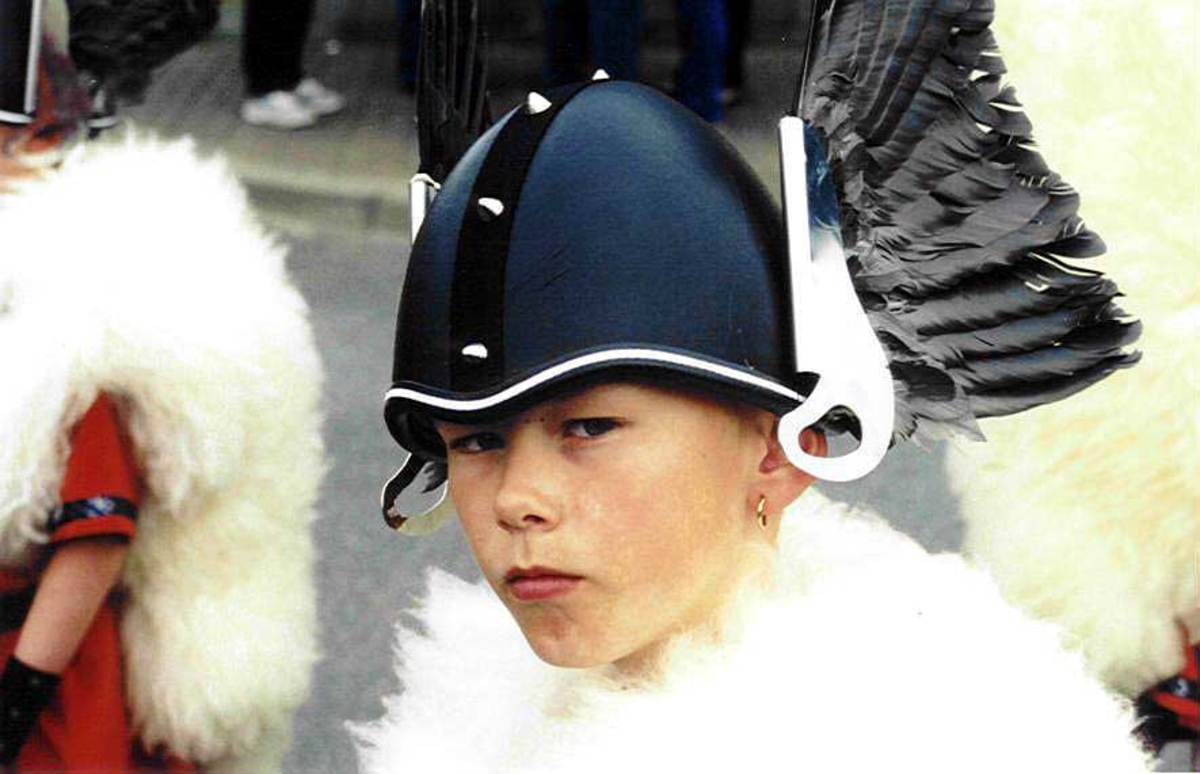- HubPages»
- Books, Literature, and Writing»
- Books & Novels»
- Books for Teens & Young Adults»
- Young Adult Fantasy, Supernatural & Sci-Fi Books
The Hunger Games Trilogy (An Analysis)

**Warning!!! This is mainly for people who’ve read The Hunger Games books. This analysis/review contains major spoilers!!**
When Suzanne Collins wrote her first book in The Hunger Games trilogy, I wonder if she had any inkling of what a phenomenon in the young adult book industry she was creating. It wasn’t a one hundred percent original idea with the movie Running Man and Stephen King’s novel The Long Walk preceding its publication, but what made it one of a kind was the lead character being female, interwoven within a horrific storyline, which ended up blossoming into a love story forged from desperate circumstances. It introduced a whole new heroine to us, one with intelligence and cunning far beyond her years, developed from the strife from which she was born and grew up. She was stoic when she had to be, brave when it counted the most, and the peeks of vulnerability her character showed reminded us that she was human. I’ll be honest, I read the first book at least four times before I moved on the second one. That’s how much I adored it.
Then, after much anticipation, I moved on to the second book of the series, Catching Fire. I’d read a few spoiler reviews before going into it so I had some idea of what to expect, but I was puzzled by the negative reviews and one person’s opinion that the second book seemed like a repeat of the first book. I began to view them incredulously. Surely, the woman who wrote such a wonderful first book, that moved me to tears more than once, didn’t follow up with a lackluster literary sequel that people only had to endure because they wanted to know what happened next. I had to read it. I needed to see for myself if they spoke the truth or if they were just being “haters”. It didn’t take me long to find out since after I got my hands on the second book in the trilogy it only took me a day and a half to read it.
Then I understood what they were talking about…
Catching Fire was a page turner, but not in the same way the first book was. With the first book every chapter held something new, I couldn’t wait to find out was going to happen next; but with the second book, I kept turning the page almost waiting for something got happen.
Let me explain myself…
In the first book, Katniss is nothing short of admirable. As a girl, I wished that I could have as much heart as she did; and I could also understand the conflict of emotions she began to have between Gale and Peeta. The ending to the first book was almost heart breaking and I thought that with the second book the story was going to flow much like the first one had: the totalitarian style government and their demands and tortures alongside Katniss’s story of survival. That’s not what happened.
I recognized what was happening in the second book a few chapters in, not quite halfway through, and I wanted to scream, “NO!!!” The politics surrounding the Capitol began to take front and center while the characters’ story were more of a backdrop. Don’t misunderstand me; I totally understood what Collins was doing as far as the plot was concerned, I just hated that she didn’t know how to develop Katniss as a teenage girl with actual emotions at the same time. Collins did nothing with Katniss’s personality--there was no growth at all, and in CF, in spite of the rousing speech she made during her tour of District 11, I found myself starting to dislike Katniss. In the first book I understood how she could come off the way she did since we’d barely been introduced to her before she was forced into an arena with the hopes of being the last one standing after 23 other children were killed by one another. But in the second book she simply came off as devoid of any real feelings or emotions of affection that could be expressed to those closest to her to the point of being absolutely frigid. Maybe that sounds a bit harsh in describing a character that’d been through so much, but that’s exactly how I saw her. There were no soft edges to her, she didn’t even come off as even a semi-normal girl in my opinion. I’ll be the first to admit that I don’t understand authors that don’t have any problems writing bloody deaths and gruesome fight scenes for teen audiences, but have an aversion to any inference towards sex or the pretense of sex at all. Newsflash: People don’t just start developing hormones at age 21! Maybe she didn’t understand her feelings for Peeta at the end of the first book, but she couldn’t deny that they’d shared intimate moments, real kisses, and some form of fondness enough for her to feel something when he was near her; which made the fact of her sleeping beside him night after night on the train as if he were nothing more than a human pillow came across as utterly ridiculous. No words were ever really exchanged between the two, they barely even touched. It was friggin’ annoying. Look, I’m not saying it should’ve been erotica, but it wasn’t realistic when dealing with people, no matter their age unless you’re talking about little kids. That is, unless she saw him as nothing more to her than a brother, but it was clear that wasn’t the case.
Then there was Katniss’s “relationship” with Gale…
Where do I even begin with how disappointed I am with how that turned out? I realize that the book was dealing with a lot of external issues from their government, but I can’t help but think that so much more could’ve been done with these two. I liked Peeta in the first book and came to love him in the second, but a huge part of me still wanted Katniss to end up with Gale. Collins did more than disappoint me, she proved that as Katniss Everdeen didn’t deserve to be in a romantic relationship because she didn’t know how to relate to people on certain basic levels of emotional competency. She could convey forms of speech based on intellect, but she was inept at gauging any kind of connection to them in other ways. She was loyal almost to a fault, but it takes more than loyalty to create a character that people can empathize with.
Supposedly, in Catching Fire, she “chose” Gale. Never mind the fact that the two barely spoke to one another during the second book, but it was the fact that the only time she actually showed him any affection at all was after he’d practically been whipped to death and lying in agony, semi-conscious, and she decided to give him a kiss on the lips which he couldn’t even reciprocate at the time that really bothered me. It was never really expounded upon whether or not she found Gale attractive in any real way or exactly how she came to choose him--whether it was that she honestly developed feelings for him or was there just a sense of security she had with him that she didn’t feel with Peeta, I suppose we’ll never know because it wasn’t clear.
It was amazing to me that a character willing to risk her life to save her little sister’s, who was courageous enough challenge the Game Makers with the night lock berries, who was single handedly responsible for her, her sister’s and mother’s survival after the death of her father, and who ensured her and Peeta’s survival in the first Hunger Games couldn’t even tell us how she felt on a basic human level regarding one person who taught her tips on survival, and the other who she risked her own life to save when he was near death’s door.
That wasn’t the only reason I felt cheated with the second book. There were characters in the first book that Collins mentioned and did nothing to expand on in the sequel. I thought that Peeta’s father was a character worth exploring, possibly a complicated man after we learned that he lost Katniss’s mother to her father when they were young only to get married to what was described to us as an almost nightmarish woman who was Peeta’s mother. Peeta, who came across as warm and gentle despite his share of killing in the first arena, obviously inherited the bulk of his personality from his father who may not have had many words for Katniss in the first book, but the gesture he made towards her spoke volumes. Peeta shared certain things about his father during their time in the arena the first time around that gave us the impression that they were probably close and maybe even shared moments that his two other brothers hadn’t. Instead, in Catching Fire, he wasn’t mentioned at all. Not as an individual. Not once. I thought that maybe we would learn more about Katniss’s mother as well, but that wasn’t done either. Instead of developing the characters she already had, Collins decided to introduce a whole slew of new ones which seemed odd to me since the whole point of a writer doing a series is to not only carry the initial story along that was too big for just one novel, but to also shed more background on major aforementioned characters that couldn’t be told within the previous book or books--at least that’s how I’ve always seen it. We did learn more about Haymitch when Katniss and Peeta viewed the footage of the year he won the Games; we learned the Mockingjay pin that Katniss wore belonged to her friend, Madge’s, aunt who died in the Games the same year Haymitch won and who was also a friend of Katniss’s mother, and was probably the cause of Madge’s mother’s intense migraines due to some psychological issues after losing her sister in the Games 25 years before; and we also learned exactly what Haymitch did to win that year which had been somewhat similar to what Katniss had done as far as outsmarting the Game Makers. Facts were stated, but no real emotional depth or realization took place in the second book that made us see anyone any differently than the first (except Peeta, in my opinion)--unless you count the fact that I saw Katniss in a more negative way.
One other thing, I don’t understand how such an intelligent character like Katniss couldn’t understand what it meant when people started brandishing the Mockingjay symbol to her personally. She obviously wasn’t thickheaded and had plenty of common sense as demonstrated in the first book, but for whatever reason there were no brain signals that went off telling her that if the Head Game Maker starts to talking to you in what sounded like a riddle that could be a hidden message of sorts, and tilting a custom watch in your face in which a disappearing Mockingjay could be found, that maybe he’s on your side. The last Head Game Maker had been killed as far as she and everyone else knew, by President Snow, so it wouldn’t have made much sense that this man would be schmoozing with her if his total loyalties were with the Capitol. If anything, had he been a dedicated Game Maker in cahoots with President Snow he would’ve regarded Katniss with nothing more than disdain, not sporting a symbol that represented her time in the arena, regardless of the fact that other citizens of the Capitol were doing just that. The head Game Maker was not just any regular citizen, after all.
Nevertheless, the story did advance as far as an ensuing rebellion was concerned, but Katniss’s behavior at the end of the book when she was going to kill Peeta left me with a sour feeling for her character in general. I wasn’t sure I wanted to read anymore in the trilogy, but when you’ve read the previous two installments and you have the third one sitting right there in front of you, it’s a little too tempting to pass up. I read on indeed…
…I honestly wish I hadn’t.
By the time I got to the third book I’d already gone on Amazon and seen that not a lot of people enjoyed the book. And I suppose phrasing it the way I just did is putting it mildly. There were a lot of people that loathed the conclusion to the trilogy, and I am among those numbers. Why, do you ask? I’ll tell you…
First of all, Mockingjay, the third installment of The Hunger Games trilogy, is so far removed from where the trilogy began it may as well not even be included as one in the package of three. It is a political/war thriller told from the point of a view of a character that has lost most of her grips to reality. Our seventeen year old protagonist is, for all intents and purposes, insane--and we’re reading along with her. I guess I shouldn’t have to explain that it was NOT a pleasant read from her perspective. So in addition to the fact that she’s always been surly and emotionally detached, we have to bear with her telling a story where she hallucinates and is constantly miserable. I started reading what I thought was a young adult dystopian book that could fall into the category of “romance”, and ended up with a 300+ page off the wall dystopian political thriller. There was nothing to indicate that you were meant to be reading a book centered around young people; had I not known that Gale and Katniss were meant to be seventeen and nineteen years old I would’ve easily thought they were in their mid twenties to thirties the way they bickered. There was no notable romance that’d taken place between the two of them, yet they related to one another like a married couple going through a trial separation headed towards a divorce. I still liked Gale’s character, but my heart was totally with Peeta throughout Mockingjay. I didn’t feel bad for Katniss at all when he was turned against her; instead, my sympathy lay solely with Peeta and what he’d gone through at the Capitol and the way his mind had been raped and the other ways he’d been physically, mentally, and emotionally tortured.
Then there is the nonsensical part of this book that I can’t make heads or tales of, which was when Katniss, Gale, Peeta, some of the rogue citizens of the Capitol, and citizens of District 13 were shooting mock footage to broadcast of their raid on the Capitol. Not only was it ridiculous that they were essentially rolling around in the street and laughing while on enemy territory, laced with deadly pods, but I actually thought I’d missed something before I got to that part and went back a few pages to make sure. I hadn’t missed a thing.
By the third book, Collins had disposed of the majority of characters mentioned during the first book by murdering them off beforehand, therefore tying up any loose ends or imagination loopholes that could’ve posed a literary problem for her story. I predicted the deaths of most of the people that I’d grown fond of from the second book, like Finnick, along with the male Avox that’d been introduced to us in Mockingjay. It was the callousness by which Collins simply made way of discarding these beloved characters, however new to the trilogy, that made me want to put the book down and not set my eyes on it again.
Page after page, chapter after chapter, reading Mockingjay was like reading the accounts of someone’s personal hell. It was like being dragged down a dark precipice of no return, because technically, I was only a few pages away from being done with the entire trilogy and I just wanted to get it over with. In the end, things came full circle. Katniss’s sister, Prim, for whom she took the place of in the Hunger Games to begin with, was killed, sending Katniss on a further downward spiral mentally and emotionally. The entire book was so bleak with no reprieve that I was hardly surprised when it happened. It did, however, make me feel worse and also made me wish I hadn’t started reading the book in the first place. In Mockingjay, Katniss honestly came across as an asshole, despite everything she’d done in the previous books that should’ve countered that opinion. The cat, Buttercup, had a reason to hate her since she’d admittedly tried to kill him in the first chapter of the first book, but for the life of me, she seemed petty and mean towards the feline in Mockingjay even though she was the one who’d gone back to rescue him from District 12 (or had he just happened to show up when she got there?). And then there was the flashlight “game” she played with him (or should I say, on him) in which she got satisfaction in making him look stupid. I couldn’t figure out if Collins was trying to make readers not like Katniss or not, because most of the things she was doing was making me dislike her more and more as the story came to an end.
To wrap up a dismal literary tale that resulted in me nearly throwing the third installment against the wall (I think that would’ve made me feel better), poor Peeta ended up married to Katniss and begged her to have children years later. He was truly the only ray of light in this story towards the end, as another reviewer so elegantly stated. In my opinion, she didn’t deserve him. As a matter of fact, I didn’t think she deserved Gale either, even after what he may or may not have done, though it’d been her decision to not be with him. No one knows how the Districts and the Capitol proceeded to operate after Snow’s death (which was anticlimactic; then again, most of the book was), but I suppose in the scheme of things, after everything that’d happened, it didn’t really matter.
I thought the first book was awesome and my opinion on that did not change. The second book was good, but nowhere near as good as the first one, and minus the romantic relationship development that I thought was going to come, but the third was an utter disaster. I actually wouldn’t suggest that anyone read Mockingjay to be perfectly honest, unless they just want to know what happens at the end of the series, and even then I wouldn’t really recommend it. Suzanne Collins is an amazing author; I cannot, and I will not discount what she did The Hunger Games. But her subsequent books in that series were a real letdown. If you want to read a YA book with a good story and romance between the characters that actually goes somewhere and you want end up wanting to punch the author try reading books by Lauren Oliver, Veronica Roth, Cassandra Clare, and Marissa Meyer. All four of those authors have written wonderful dystopian and paranormal/supernatural novels and beautiful love stories in the process. I'd say go with their stories if you're looking for romance and a good storyline because you're not going to find it reading The Hunger Games trilogy.


